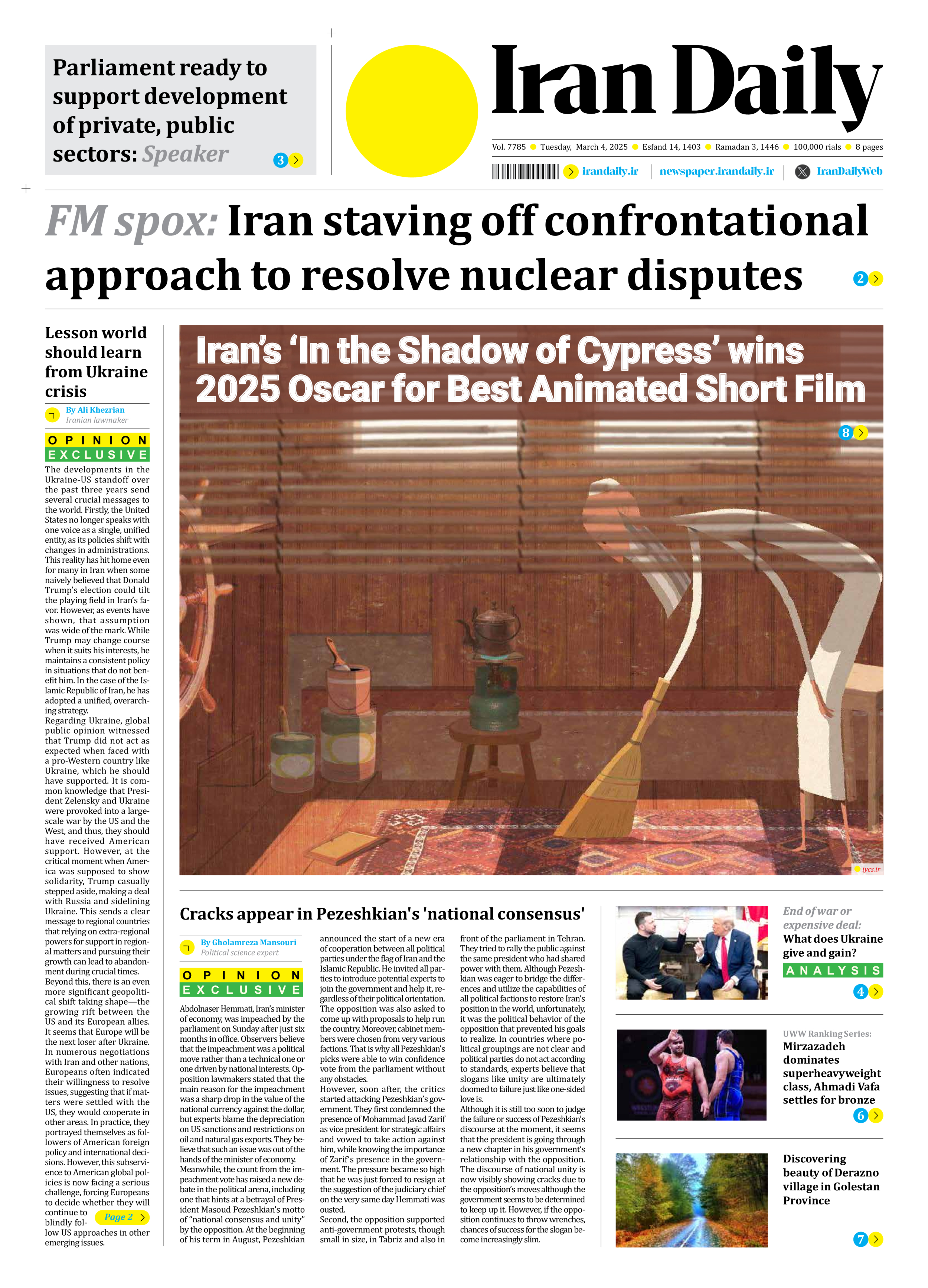
Cracks appear in Pezeshkian’s ’national consensus’
By Gholamreza Mansouri
Political science expert
Abdolnaser Hemmati, Iran’s minister of economy, was impeached by the parliament on Sunday after just six months in office. Observers believe that the impeachment was a political move rather than a technical one or one driven by national interests. Opposition lawmakers stated that the main reason for the impeachment was a sharp drop in the value of the national currency against the dollar, but experts blame the depreciation on US sanctions and restrictions on oil and natural gas exports. They believe that such an issue was out of the hands of the minister of economy.
Meanwhile, the count from the impeachment vote has raised a new debate in the political arena, including one that hints at a betrayal of President Masoud Pezeshkian’s motto of “national consensus and unity” by the opposition. At the beginning of his term in August, Pezeshkian announced the start of a new era of cooperation between all political parties under the flag of Iran and the Islamic Republic. He invited all parties to introduce potential experts to join the government and help it, regardless of their political orientation. The opposition was also asked to come up with proposals to help run the country. Moreover, cabinet members were chosen from very various factions. That is why all Pezeshkian’s picks were able to win confidence vote from the parliament without any obstacles.
However, soon after, the critics started attacking Pezeshkian’s government. They first condemned the presence of Mohammad Javad Zarif as vice president for strategic affairs and vowed to take action against him, while knowing the importance of Zarif’s presence in the government. The pressure became so high that he was just forced to resign at the suggestion of the judiciary chief on the very same day Hemmati was ousted.
Second, the opposition supported anti-government protests, though small in size, in Tabriz and also in front of the parliament in Tehran. They tried to rally the public against the same president who had shared power with them. Although Pezeshkian was eager to bridge the differences and utilize the capabilities of all political factions to restore Iran’s position in the world, unfortunately, it was the political behavior of the opposition that prevented his goals to realize. In countries where political groupings are not clear and political parties do not act according to standards, experts believe that slogans like unity are ultimately doomed to failure just like one-sided love is.
Although it is still too soon to judge the failure or success of Pezeshkian’s discourse at the moment, it seems that the president is going through a new chapter in his government’s relationship with the opposition. The discourse of national unity is now visibly showing cracks due to the opposition’s moves although the government seems to be determined to keep up it. However, if the opposition continues to throw wrenches, chances of success for the slogan become increasingly slim.







